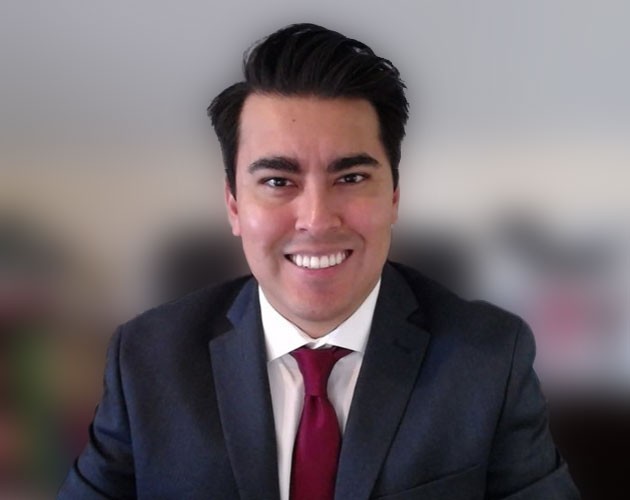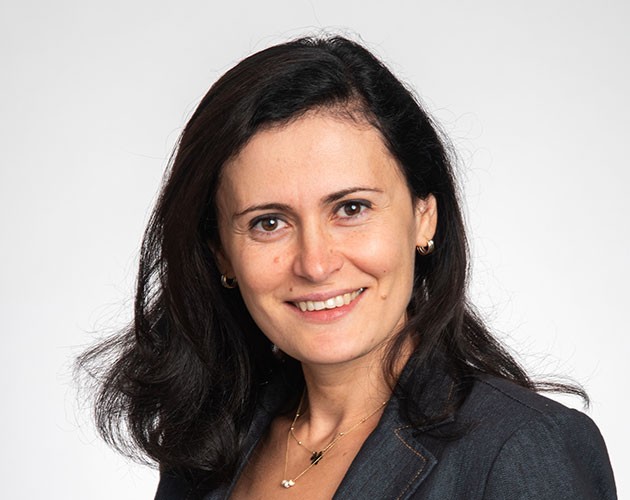Tying Research to Health Care Improvements

For Amanda Allen, health care is all about connecting the dots. For many years—both during her undergraduate studies at University of Colorado Boulder and then at Stanford University and now working at Kaiser Permanente—Amanda focused on research, primarily in cardiology for elderly patients.
While digging through AI and text-mining to pull together database-driven studies, Amanda stepped away from the computer to also incorporate in-person interventions. From her experiences in data extractions and analysis came big ideas on how to positively impact these patients. She envisioned solutions in design and implementation and, ultimately, roll-out to the patients.
But the steps from research to clinical care proved elusive. What she needed was a strong foundational knowledge in clinical research to better understand the regulatory, design and implementation aspects to bring her research to life. Amanda heard about our Certificate Program in Clinical Research Conduct and Management during conversations with colleagues, many of whom had taken classes with us.
I recently Zoomed with Amanda at her office space from Kaiser to learn more about her interest in this in-demand field.
In the past, I've always been in the middle piece—talking with patients and doing the data collection—but I wanted to learn more about the bigger picture and contribute to the design aspect.
In addition to colleagues’ recommendations, were there aspects of the certificate that really stood out for you?
When I started [in 2019], there were a lot of regulation changes. The classes that focused on regulation, design and implementation within health care were really interesting. At Kaiser, I was learning on the job when things were changing—learning the methods and how to think about those changes, asking questions and figuring out how to actually translate that into actions.
I wanted to gain new skills to be able to better understand all of the aspects of health care—from start to finish. In the past, I've always been in the middle piece—talking with patients and doing the data collection—but I wanted to learn more about the bigger picture and contribute to the design aspect.
Are there specific classes that you enjoyed or instructors who really stand out for you?
Well, it’s funny: One of my instructors, Victor Chen, was hired here at Kaiser, so now we work together!
That's real networking!
So that was a fun experience! But the courses on data security and information protection really stuck out at the time, because at the end of those classes, COVID hit. So there was a lot of switching everything over to telehealth and electronic forms and such. Hospital systems had been a little resistant to those changes or there were too many unknowns at the time, so having that knowledge to start with was really helpful.
The classwork definitely aligned with my job.
You took all of your classes online. How was your experience learning in that way?
I liked it! This was the first time I had taken any online courses. It made it easy to stay at work because I could be really flexible with my schedule. In the online classes, there were blog posts or weekly discussions, so I was able to network and meet people. I liked that it was really convenient.
Were you able to put any lessons learned from one of the classes at work the next day?
Absolutely. The course about trial documentation and reporting was really helpful, because that information can be difficult to find online. Or, every situation is a little bit different: You get the “it depends” answer all the time. It's not a super-clear definition. So that course was really helpful to make sure that we can actually implement a process and meet the reporting requirements and documentation that we need.
Also, reading what other students were doing at work or what they thought about current events was really helpful to put problems into context or lean on other people's expertise for a problem I might have been having. The classwork definitely aligned with my job.
Doing this certificate helped me see what it would look like to go back to school, while also getting the benefit of being promoted at work!
Since completing the certificate, you’ve been promoted to Research Associate II at Kaiser.
I’m in more of a clinical coordination role, working on the operations and implementation of research, as well as connecting the physicians to research. I'm primarily interested in the system building of research: How do we break down the silos between the bedside and the research, and then integrate our findings to improve care?
What does completing the certificate mean to you professionally and personally.
Professionally, it definitely bumped me up in skills in order to level up. It was an in-between step to getting a master's: I've just finished the first year of a master's program in clinical and health informatics at University of Wisconsin-Madison. I’m still in research and technology and building the bridge between health care and technology. Doing this certificate helped me see what it would look like to go back to school, while also getting the benefit of being promoted at work!
Personally, I think I proved to myself that I could do it while working. I see myself as a lifelong learner, so it was nice to get back into that school environment. I really enjoyed talking with people who were excited to learn different things and gain new skills.
What advice would you give someone who is just starting out in the clinical research certificate?
Take the opportunity to really enjoy it. You might be thinking, “I just gotta get the classwork done,” but take the opportunity to enjoy and learn things that you wouldn't necessarily interact with all the time. Because it is a lot of fun.


